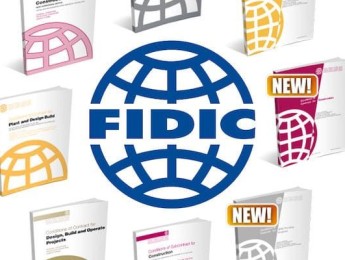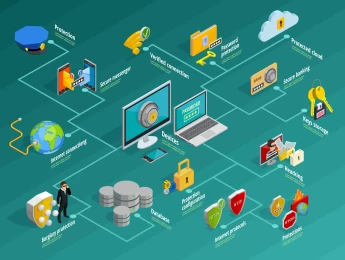Procurement is a vital aspect of facilities management. To ensure a building’s facilities remain completely safe and functional, facilities management professionals often will have to outsource specialised contractors to carry out maintenance and repairs effectively. Without maintenance, facilities can often become too unstable for safe use and fall out of compliance with national health and safety regulations.
There are several key stages in procurement, including contract management, tender management, and mobilisation. For the procurement process to be successful, one must understand the details of service contracts, such as setting terms and conditions, service specifications, and how to structure the physical document itself. The tender process involves setting the price for the service and negotiating with the contractor on a price that remains within the organisation’s budget but is also satisfactory for the expected work.
Mobilisation covers the service as it is being conducted. Monitoring service progress allows the facilities management professionals to understand the service's depth and if they can meet organisational goals. Furthermore, they will be responsible for settling any disputes between any parties and making any necessary adjustments to the tender and budget for the service.
Upon completion of this course, participants will be able to:
- Understand the importance of effective procurement within facilities management.
- Analyse facilities and functions to identify areas for service level improvements and cost savings.
- Comprehend the various types of service contracts and how to manage these effectively.
- Utilise various methods of creating strategies to find the most ideal service contracts.
- Recognise areas of potential conflict and take steps to settle tension before productivity is impacted.
- Assess each stage of the tender process and how to negotiate an ideal and fair price.
- Examine structured evaluation methods to aid in the tender process.
This course is designed for anyone in facilities management who is responsible for any procurement process. It would be most beneficial for:
- Facilities Managers
- Contractors and Subcontractors
- Procurement Managers
- Procurement Consultants
- Financial Advisors
- Operations Managers
This course uses a variety of adult learning styles to aid full understanding and comprehension. Participants will review real-world examples of procurement and service contracts to highlight key specifications and features that help the contract remain secure.
They will participate in various learning methods, including presentations, group discussions, role-playing activities, and practical activities. This combination of methods will ensure that the participants develop a full and comprehensive understanding of the taught content and related practical skills. Working alongside their peers will also allow them to practise and demonstrate their newly learned skills.
Day 5 of each course is reserved for a Q&A session, which may occur off-site. For 10-day courses, this also applies to day 10
Section 1: Introduction to Procurement
- Defining what procurement is within facilities management, its necessity and importance.
- Who is typically involved in the procurement process?
- Setting expectations and ideal outcomes for procurement.
- Evaluating current organisational goals and identifying how procurement can help meet these.
- Reviewing current service provisions and costs.
- Calculating a future budget to include potential procurement.
Section 2: Service Contracts
- Setting expectations throughout the process of securing service contracts.
- Ideal formatting and structuring of the document.
- Deciding on the terms and conditions of the contract and service.
- Understanding the specifications of the service and how to draft a service specification document.
- Comparing the average service price with the organisation’s budget and structuring pricing schedules.
Section 3: The Tender Process
- Explaining what the tender process is within facilities management.
- How to take control of the tender process.
- Identifying the individual stages of the process and how to proceed effectively.
- Understanding the set price and knowing when to negotiate.
- Beneficial interviewing and negotiation techniques and methods.
- Completing the deal efficiently and effectively.
Section 4: Mobilisation
- Establishing working relationships with all involved parties – facilities management professionals, contractors, and clients.
- Ensuring effective communication among all involved parties.
- Setting meetings and managing the necessary documentation.
- Setting KPIs and monitoring service progress throughout to ensure productivity and client satisfaction.
Section 5: Contract Management
- Prioritising strategic management.
- Measuring performance and comparing it to the established budget.
- Acknowledging where costs are too great and making necessary adjustments.
- Ideal methods of monitoring specific services to ensure maximum productivity.
- Resolving disputes between individuals impartially.
- Reviewing development and re-tendering where needed.
Upon successful completion of this training course, delegates will be awarded a Holistique Training Certificate of Completion. For those who attend and complete the online training course, a Holistique Training e-Certificate will be provided.
Holistique Training Certificates are accredited by the British Assessment Council (BAC) and The CPD Certification Service (CPD), and are certified under ISO 9001, ISO 21001, and ISO 29993 standards.
CPD credits for this course are granted by our Certificates and will be reflected on the Holistique Training Certificate of Completion. In accordance with the standards of The CPD Certification Service, one CPD credit is awarded per hour of course attendance. A maximum of 50 CPD credits can be claimed for any single course we currently offer.
- Course Code IND21-109
- Course Format Classroom, Online,
- Duration 5 days














